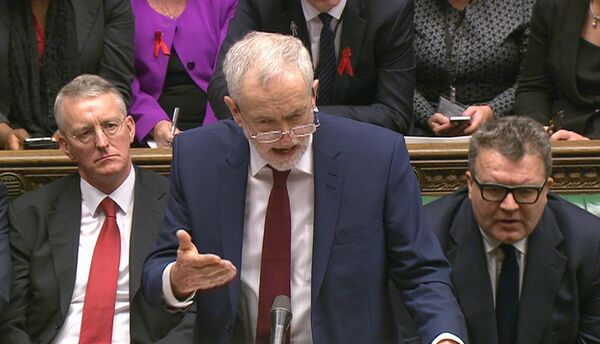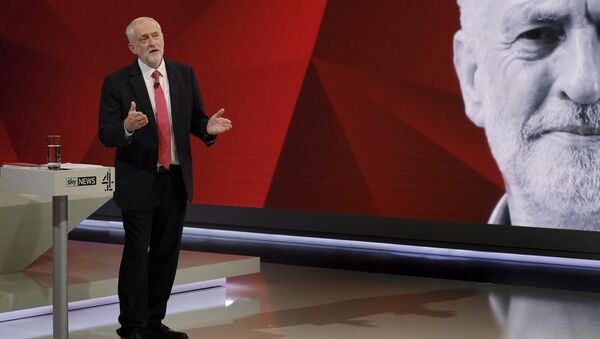British Labour leader Jeremy Corbyn's left faction of the party on Tuesday, September 19, prevailed in establishing control of its rule-making and governance structures, increasing the likelihood of the most radical Labour government in decades, were it to win the next election, which could face immediate and massive opposition from the United Kingdom's political, economic and even military establishment.
The Labour leader, who was widely written off as a serious candidate both in 2015 and in the lead-up to the UK's general election in June of this year, has announced policies increasingly at odds with the country's current direction.
Labour offers an alternative to that failed economic experiment. We will deliver a country that works #ForTheMany, not the few.
— Jeremy Corbyn (@jeremycorbyn) September 19, 2017
Some of the most recent examples were his push for federalization of the United Kingdom under a future Labour government, as well as his widely publicized opposition to the Trident Nuclear Submarine system, although that has not been adopted as party policy.
'Nightmare Scenario'
Shortly after he won the leadership of the party in 2015, an unnamed serving general in the British Army gave an extraordinary interview to the Sunday Times in which he predicted a mutiny among the military if a Corbyn-led Labour government's policies "jeapordized the security of the UK."
Going on to forecast mass-resignations, the General predicted the use of "all means, fair or foul," to derail an anti-militarist agenda pushed by the Labour leader.

Leading figures in Britain's intelligence establishment also implied at the time that even as prime minister, Mr. Corbyn would still be denied access to certain information deemed too sensitive for him to access.
Such unprecedented animosity between the nation's military and security establishment and a potential future prime minister could lead to political instability unseen by the United Kingdom in modern times.
The unnamed General's "nightmare scenario" is now significantly closer to materializing, with the Conservatives reliant on a slim parliamentary majority provided by the Democratic Unionist Party (DUP) of North Ireland, and Jeremy Corbyn seemingly having cemented the left faction's hold on the Labour Party.
Corbyn's Opposition From Within
On top of intense Conservative opposition to his political and economic agenda, a future Corbyn prime ministership could face continuing opposition from within, with a majority of sitting Labour MPs having previously opposed his leadership.
Former Labour Prime Minister Tony Blair, a key backer of the pressure group Progress, which has opposed Corbyn's reforms to the party's governance, stated after the election that the combination of Jeremy Corbyn's "unreconstructed" agenda in addition to the effects of Brexit would be dangerous for the country.
Mr. Blair's Labour successor, Gordon Brown has similarly refused to endorse Jeremy Corbyn as a suitable prime minister.
Upon the publication of Labour's election manifesto earlier this year, the business community lined up to condemn the party's platform as "knee-jerk," along with many of the country's largest newspapers such as the Telegraph, which insisted policies such as renationalization of railways and higher taxation of wealthier citizens would "devastate" the economy.
With Mr. Corbyn now firmly entrenched at the top of his party, his possible future government could expect to face fierce opposition not just from its Conservative rivals, but from the business class, the military-security establishment, the media and even Labour MPs who still haven't accepted the party's change in direction.



